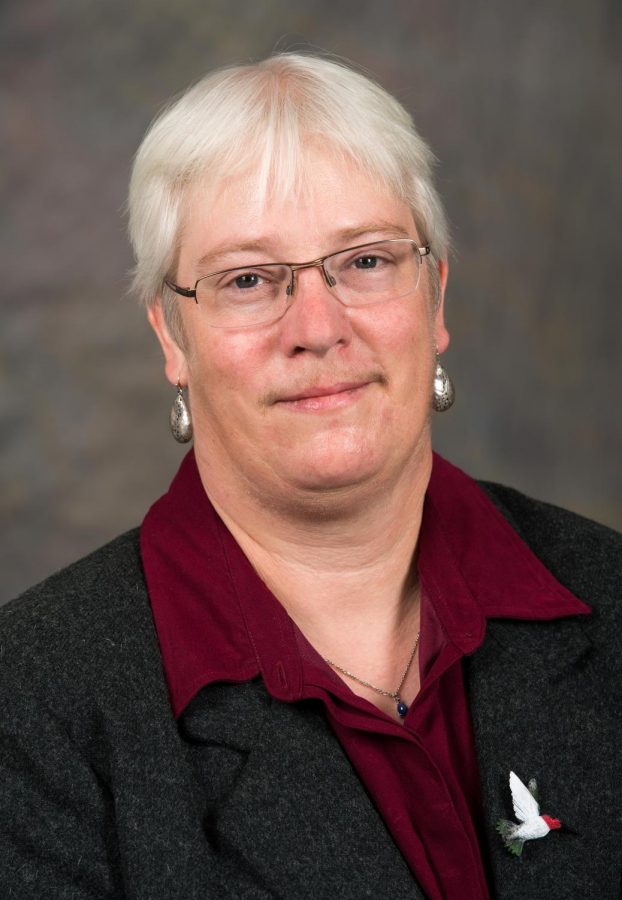Grad school dean hopes to make ‘bigger moves’
Gloss anticipates funding as biggest obstacle, wants to apply for grants
Lisa Gloss, new dean of WSU’s graduate school, was a former interim director and worked in the school of molecular biosciences. Gloss is now in charge of setting the mission and goals for graduate school students.
January 7, 2019
This story has been updated to reflect the correct number of graduate students who earn a doctoral diploma from WSU every year.
The newly-appointed dean of WSU’s graduate school hopes to continue the improvement student and faculty experience.
Lisa Gloss was appointed as interim dean of the graduate school in August of 2017 after her predecessor Bill Andrefsky stepped down, said Cheryl Reed, director of public relations and communication for the graduate school.
“As interim dean, it’s your job to keep the ship afloat, but there are things that you just can’t do,” Gloss said. “Now, as the permanent dean, I can make bigger moves. They finally gave me that magic wand.”
Gloss worked as a faculty member for 20 years and worked in the school of molecular biosciences. Before becoming dean, Gloss was the associate director of the graduate school for six years.
Graduate school is there to serve the students and help them become successful, Reed said. The office manages paperwork, assists students with dissertations and advocate for the students who deal with problems, she said.
“I’m in charge of setting the mission and goals for the graduate education,” Gloss said. “I want to ensure that students get the professional skills that will allow them to be successful.”
Gloss said her goals include hiring more staff, increasing student enrollment and making the graduate school more efficient. She will continue the Professional Development Initiative she started as interim dean.
The initiative helps students develop skills that go beyond academics, Gloss said. It will help students get better placements for future jobs and increase job opportunities.
Gloss said the biggest obstacle she will face is funding. Gloss wants to improve the school’s finances by applying for training grants, National Institutes of Health grants and National Science Foundation grants.
“Graduate education is coupled with research and scholarship, and that requires money,” Gloss said. “The money is [used to] support students, acquire supplies, and pay the faculty that trains the students.”
A part of Gloss’ mission to improve the graduate school includes a thorough analysis of the school. She also hopes to travel to other universities to learn from their graduate programs.
“There’s always room for growth, but you can only grow so far by looking at yourself,” Gloss said. “Sometimes you have to go look at others and see where you can improve.”
Gloss’ position is vital in continuing WSU’s effort in the Drive to 25, Reed said. The graduate school is constantly rewriting their strategic plan, and Gloss is in charge of delivering the plan, she said.
“It was hard for us to not really know who our dean would be,” Reed said. “As an office staff, we are very pleased that a decision has been made and that [Gloss] will be on board for another two years.”
About 300 graduate students earn a doctoral diploma from WSU every year. Gloss said she wants to increase that number to around 500 doctoral graduates per year. A growing graduate education should also improve undergraduate education. Having more graduate students will increase the number of mentors for undergraduate students, she said.
“The [graduate school] is not just a little corner of the university. We need to be involved and participate in all areas of education,” Gloss said. “I am committed to WSU. I want to leave this place in a better place than where I found it.”




















